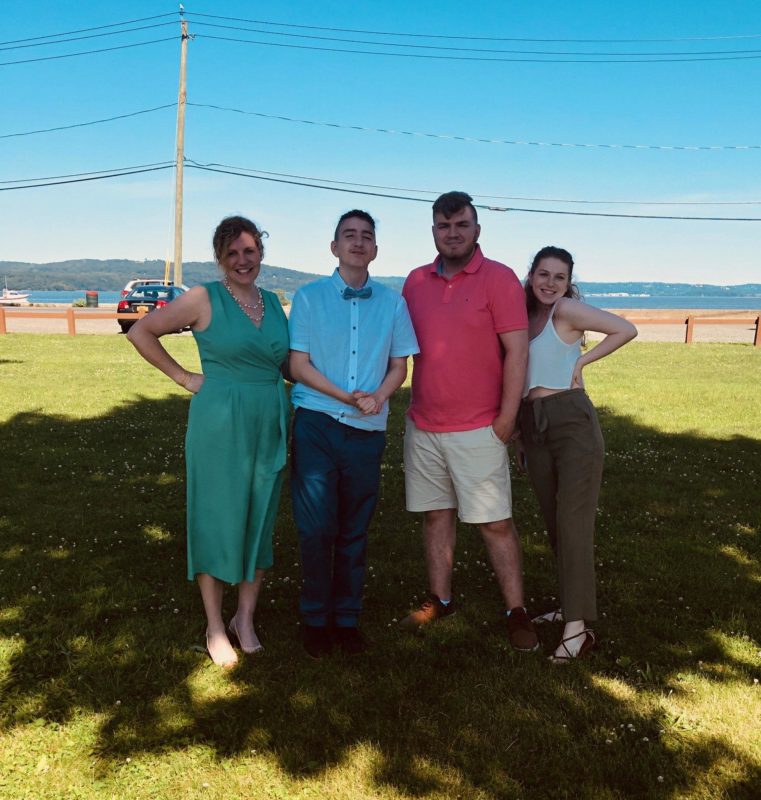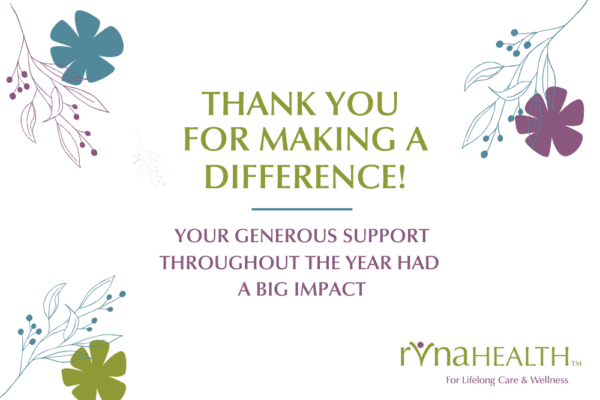

The following essay was written in 2019 by Keri Linardi, RN, BSN, PHN, CHPCA, Chief Clinical Officer of RVNAhealth. Keri is, has been, and always will be a hospice nurse — in addition to the other roles she assumes. Hospice care is part of Keri’s being, part of her heart and the key to how she approaches her life.
This month, November, is Hospice and Palliative Care Month. In her words below, Keri shares her perspective on how hospice has impacted her and her children’s lives, and what we can do this month to plan for our own futures.
Children raised in the home of a hospice nurse, like me, live in a world where death and dying, and ending suffering are talked about freely. During my years of night shifts, my young children would ask over breakfast, when I returned home, how many people had died last night, and we would talk about the beautiful deaths I was privileged to bear witness to.


Some of the stories were funny, like the husband who called me when his wife had passed in the middle of the night, only for me to discover, when I touched her and she sat up, that she was still very much with us. To the ones that touched too close to home, like the children near to my own children’s ages, so that when I went to the car after leaving their homes, I sobbed uncontrollably for what seemed like forever, for a life lost too soon and for families who would have holes in their hearts that would never be repaired, just healed with memories over time.
We are a country that has plans for everything from birth, to vacations, yet we don’t plan for our own mortality. Dying sneaks up on families and throws them into decision making in moments of crisis — a time when decisions should not be made!
Honoring Wishes Versus Making Decisions
Being a child of a hospice nurse is a double-edged sword: we never hang up the phone without saying ‘I love you;’ I have never sweated the small stuff with them, you want magenta hair?, it’s your head, go for it! The flip side is we talk about mortality – particularly my own — over family dinners. This bothers my children a little, now ages 22, 19 and 13, but I need them to understand in simple terms what my wishes are if anything were to happen to me, and I need them to know that they will not be making decisions but simply honoring my wishes, decisions I have already made. They also fully understand that dying is a natural part of living, the circle of life.
In times of crisis, these ‘already-had conversations’ can be the greatest gift you give your loved ones, the gift of them knowing exactly what you would want to do. The gift of them knowing that they are not making the decisions for you when you aren’t able, they are honoring you one last time by following your wishes.
As a hospice nurse, who has seen families grappling with decisions at critical times, this is a gift I would like everyone to give their loved ones.
But we aren’t there yet.
In this country we have disparities in care that interfere with individuals’ abilities to access hospice care when it is needed most. A study from Duke University in 2018 outlines that African Americans, 13.4% of the population, make up only 8% of hospice patients in America and are more likely to suffer from untreated pain; Hispanic patients, who represent 18.3% of the US population, make up 7% of hospice patients nationally. There are cultural barriers that interfere with their access to hospice care.
We need to work together to change this and to provide culturally competent care at the right time – and we need to dispel the many myths around hospice care.
The hospice Medicare benefit is a six-month – approximately 180 day — benefit of care that provides support from a whole team of professionals who wrap themselves around the patient and family to help them through one of the most challenging times of their lives. In my 26 years of nursing, I have never had a family tell me they came on to hospice too soon. I have had many families tell me, “If I had only known what hospice was, I would have called sooner.”
Care, Comfort and Treasured Moments for Patients and Families
Despite the 180-day benefit, the national average length of stay for hospice care in the country right now is 21.5 days; for the state of Connecticut it is 14 days. This means that as a state, we aren’t doing a very good job at acknowledging life-limiting conditions head on — in a direct, kind, caring manner. We are introducing hospice care too late in the process and we are denying patients and their families care, comfort and treasured time when they need it the most.
Often when hospice is offered as an option, it is presented in negative terms – “There isn’t anything more to do;” Do not resuscitate,” — when in fact there is a lot of living and a lot of joy that occurs in hospice.
When life-limiting conditions occur, we in hospice care talk about allowing natural deaths, managing symptoms, and living every day to its fullest. Imagine if you knew you only had six months left to live — would you do anything differently?
Hospice care has filled my cup these past 20 plus years in nursing. I am appreciative and grateful to the patients whose hands I have held; to those whose windows I have gazed out of, together enjoying their favorite hydrangeas; the families whose strength and grace I have marveled at as they cared for their loved ones through to the end. The kindness they have shown me as guests in their home.
I am amazed daily at the wonderful team of hospice people at RVNAhealth that come to work and give of themselves every day for our community and patients and families. And to you, our RVNAhealth hospice families. I am in awe of you and thank you for allowing us to be guests in your home and into your lives during this very private time. I honor you during this special month.
In closing, I would encourage anyone who has not yet started their Advanced Care Planning conversations to use this November as your springboard to make the move! Start the conversation about Advanced Care Planning, visit our hospice and palliative care team at RVNAhealth. Let us help you start the conversation during non-crisis times. We have educational handouts to guide you, as well as team members to speak with. Nobody has ever regretted the decision to plan in advance. On the contrary. It’s a gift to yourselves and your loved ones.
To learn more, contact 203-438-5555 or visit our Hospice Services page.
Read More Hospice & Palliative Care Month Articles
Hospice Music Therapy Provides Comfort and Memories
How Spiritual Care Providers Help Hospice Patients and Their Families



